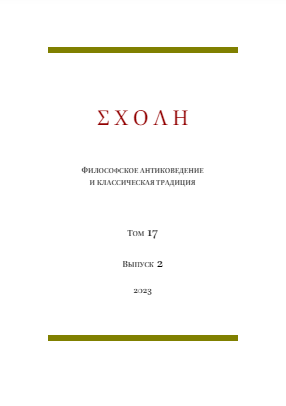A Reliabilist Interpretation of Socrates’ Autobiography
A Reliabilist Interpretation of Socrates’ Autobiography
Author(s): Tonguç SeferoğluSubject(s): Philosophy, Epistemology
Published by: Новосибирский государственный университет
Keywords: reliabilism; Phaedo; Socrates’ autobiography; deuteros plous;
Summary/Abstract: This paper aims to offer a novel interpretation of Socrates’ autobiography in the Phaedo 96-102 by using reliabilist epistemology as a heuristic guide to spell out the complex dynamics of the intellectual development of Socrates of the Phaedo. Surprisingly, scholars have mostly focused on the outcomes of Socrates’s scientific investigations, but they neglected the dynamics of the discovery process. The reason why Socrates rejected many earlier scientific ideas and the way in which he discovered new theories as much significant and noteworthy as those theories. I argue that Socrates’ discovery and implementation of new methods of inquiry meet the epistemic standards of reliabilism that emphasize the reliability of processes involved in belief-formation. I show that Socrates criticized the physicists’ materialistic-mechanistic approach to explain coming-to-be, perishing, and being because of its unreliability. The paper concludes that (a) the concept of reliability is used as a guide to theory choice in Socrates’ autobiography (b) the positive feature of Socrates’ second sailing is its reliability and (c) reliability is the motive behind Socrates’ choice of certain belief-forming processes, namely a priori reasoning, the method of hypothesis, and the theory of Forms, in the search of the cause of coming-to-be, perishing, and being.
Journal: ΣΧΟΛΗ. Философское антиковедение и классическая традиция
- Issue Year: XVII/2023
- Issue No: 2
- Page Range: 582-604
- Page Count: 23
- Language: English

